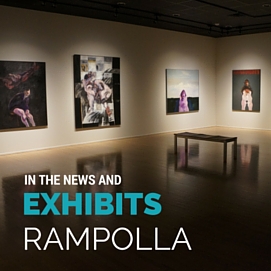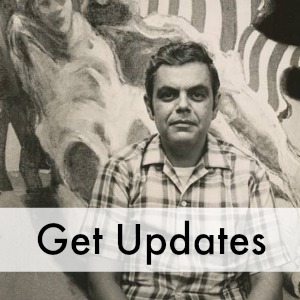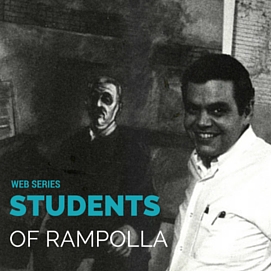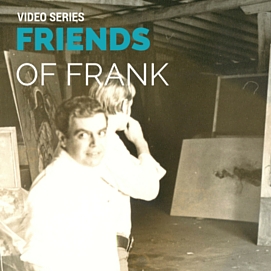It seems appropriate to be reminded anew that art is a human endeavor with its roots deep in the personalities of those who dare attempt to create it. Further, we must remember that its ultimate worth is confirmed in the imaginative consciousness of those who recognize their need for art as a means of insuring psychic survival and who understand the need for exercising wisdom in the uses of its power. Frank Rampolla was one of those who understood these needs, powers and responsibilities and still dared to attempt to create art.
From the first moment of viewing, it is clear that the art of Frank Rampolla is informed by the great traditions of art. The sensuous properties of the works reflect the operation of sensibilities sharpened by the contacts with the past and made fresh by a deep and imaginative involvement with the present.
Paint is applied in a knowing way, human forms are deftly presented in ways which reveal intimate knowledge of their structure and vital content and, finally, an imagery emerges which speaks of central issues in the human condition.
We are not always flattered by the truths shown in these works. Indeed, Frank Rampolla has determined to show us things about ourselves which men of lesser conscience would prefer to avoid. These insights into man’s being can be disturbing but they can also be comforting for in many ways it is not a terrible thing to be human. Our first impressions of ourselves as mirrored in these works may speak of the twisted desperation and the agony of loneliness. However, upon deeper reflection, we can perceive the dignity of human life and its ultimate worth can be understood.
In the hands of a lesser artist, this view of man would be at least unsettling; but these works are infused with those substantive energies of love, religious conviction and tradition which have given sustenance and purpose to the human enterprise. In the end there is hope rather than a desperation, purpose rather than aimlessness and the universal warmth of love and religious spirit prevails over loneliness.
The imaginative and moral consciousness of Frank Rampolla was convinced of the ultimate worth of humankind; and it was these sentiments, liberated by a belief in the power of art to inform and to extend our boundaries for knowing these truths, that gave rise to the driving energies which produced these works.
Above all, Frank Rampolla cared about people, understood the value of life and believed in the capability of enriching the human endeavor through art.
William E. McCracken




